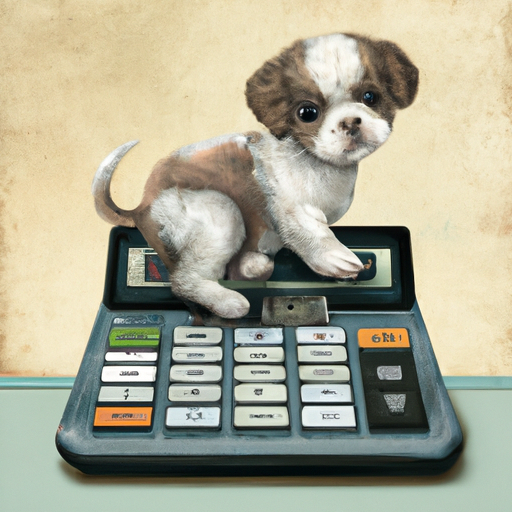As a devoted caregiver to your new fur-baby, you’re probably filled with curiosity about how big your puppy will grow. In this guide, we’ve provided a comprehensive approach to estimate your puppy’s adult weight. While there’s no exact science to this prediction (as each dog is unique), this guide will offer a solid springboard for your expectations.
Understanding The Basics
It’s essential to understand that the puppy’s breed plays a crucial role in determining their adult size. Large breeds like Great Danes will obviously grow to be larger than small breeds like Chihuahuas.
- Small Breeds: These typically reach their adult weight between 9-12 months of age.
- Medium Breeds: These dogs usually hit their full-grown weight between 12-16 months.
- Large Breeds: Large breeds can take up to 2 years or more to reach their adult weight.
Factors That Influence Puppy Growth
Several factors contribute to your puppy’s growth, and understanding these can help you predict their adult weight:
- Genetics: The breed and the puppy’s parents’ size are the most significant factors.
- Nutrition: Proper nutrition is crucial for growth. Overfeeding or underfeeding can impact your puppy’s weight and overall health.
- Exercise: Regular exercise is essential for healthy growth, but over-exercise can harm a growing puppy.
- Health: Certain health issues can impact growth, such as parasites or severe illnesses.
The Puppy Weight Calculator
The puppy weight calculator is an easy tool to estimate your puppy’s adult weight. Here’s a simple table to illustrate how it works:
| Age of Puppy | Calculation |
|---|---|
| Under 21 weeks | (Current weight in lbs / age in weeks) x 52 |
| Over 21 weeks | Current weight in lbs |
Remember, this method provides an estimation and is not 100% accurate.
How to Maintain a Healthy Puppy Weight
Maintaining a healthy weight is essential for your puppy’s wellbeing. Here are some tips:
- Feed Balanced and Nutritious Meals: Make sure you’re feeding your puppy high-quality dog food that meets all their nutritional needs.
- Regular Exercise: Regular but not excessive exercise is essential for a healthy weight and overall health.
- Regular Vet Check-ups: Regular vet check-ups can help catch any potential health issues early and ensure your puppy is growing normally.
Dealing with Weight Issues
If you find that your puppy is underweight or overweight, it’s important to address the issue promptly to prevent potential health problems.
- Underweight Puppy: If your puppy is underweight, it may be due to health issues or not feeding enough. Consult with your vet to determine the cause and solution.
- Overweight Puppy: Overfeeding or lack of exercise could lead to an overweight puppy. Make sure your puppy gets regular exercise and consider adjusting their diet.
FAQ
Q: Is the puppy weight calculator accurate?
A: The calculator provides an estimate based on averages. It’s not 100% accurate as many factors can influence a puppy’s growth.
Q: What if my puppy is a mixed breed?
A: For mixed breeds, consider the average weight of the two parent breeds.
Q: What if my puppy is underweight or overweight?
A: Always consult with your vet if you’re concerned about your puppy’s weight. They can provide expert advice tailored to your puppy’s specific needs.
Q: Can I stop my puppy from growing too big?
A: You cannot stop a puppy from reaching its genetically predetermined size. However, maintaining a healthy weight is crucial for their wellbeing.
Q: Can I use the puppy weight calculator for all breeds?
A: Yes, but remember it’s based on averages, so it may be less accurate for some breeds. Always consult with your vet if you have concerns.



